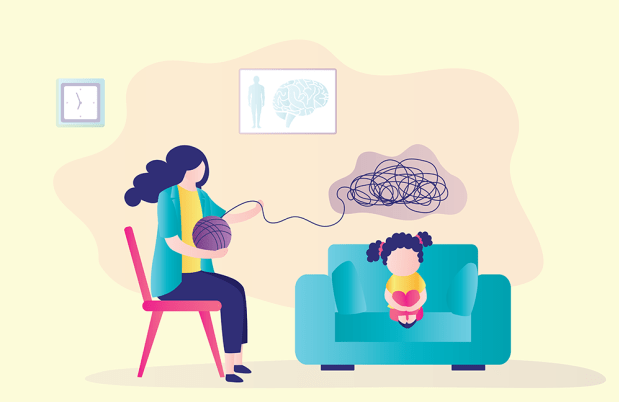Helping Clinicians Navigate OCD and Support Their Patients
Available with English captions and subtitles in Spanish.
Obsessive compulsive disorder (OCD) is a challenging condition for clinicians to treat. As it is often complicated by coexisting conditions, there is a need for health care providers to understand OCD, its related disorders, and various treatment options to achieve better mental health outcomes for these patients.
In this session for clinicians, Elizabeth McIngvale, PhD, LCSW, helps us better understand the varying degrees of OCD, diagnostic criteria, evidence-based treatment, and the condition’s impact on patient care.
This content is also available in Spanish.
Audience Questions
Dr. McIngvale answers clinicians questions such as:
- Can you speak briefly about the basics of OCD?
- Do you have advice for patients who are looking to participate in response prevention, but have trouble inhibiting compulsions?
- Do you have any suggestions for treatment for checking behaviors?
- Could you talk a little about differential diagnosis and treatment for OCD vs. OCPD (obsessive compulsive personality disorder)?
- Where can you find clinicians that truly specialize in OCD, not just say they do?
- What is the best way to go about being trained in ERP (exposure and response prevention) therapy?
- What are your book recommendations on OCD that you give to your patients?
- How can we tell the difference between a patient being very particular or a mild perfectionist vs. needing OCD treatment?
- Could you please describe the difference between behaviors that might be classified as subclinical OCD vs. OCD-like behaviors that might be considered normal?
- Is there a known link between traumatic experiences and OCD? If so, do we know why that is?
- How do we manage COVID-19 related obsessions and compulsions considering there are real, threatening stimuli? How can we make active exposures without engaging patients in risky situations?
- Please speak to the threshold in treating OCD patients and knowing when they need more than just outpatient therapy.
- Any suggestions regarding treating a patient who is pulling out their hair due to boredom instead of the behavior being driven by stress?
- A patient with pedophilia OCD (POCD) is now having intrusive thoughts about going to jail and gets depressed that this will be her future. She asked if she should do exposures about going to jail. My thought was that as she does more exposure that fear will subside. I want to help her feel less hopeless about her future. Thoughts?
- What do we do when doing ERP with a patient, and the consequence they fear is open ended, as in “If I don’t do my ritual, something will happen in the future”?
- How can families best support teens with their treatment for OCD behaviors that impact their daily functioning?
- Kids with autism who also have OCD have a very hard time. The autism seems to prevent them from practicing the ERP that will help them. Are there any programs that address this, or do you have suggestions for us?
- What have you found useful in helping a patient manage the shame around their OCD behaviors?
- For patients confronting complex trauma and OCD, when providing ERP, do you need to balance mindfulness techniques during active exposures to promote the prevention response?
- Are relaxation skills part of ERP?
- How common is it for OCD obsessions to change vastly from week to week? Can ERP be effective when symptoms change like this?
- Do you ever find that once one behavior is removed a different one begins?
- OCD treatment can be challenging for most patients. Any suggestions on how to improve treatment compliance?
- Do you have any advice about conceptualizing OCD vs. subclinical eating disorder behaviors that have the compulsive and obsessive quality?
- Can you please discuss effective and safe utilizations of ERP for POCD?
- Are there any recommended treatment modalities specifically for school-aged children?
- How might perseverative behavior related to autism differ from OCD and how would the treatment differ? I am wondering about repetitive questioning in particular.
- I understand that CBT and ERP are thought of as the gold standard treatments. However, do those treatments get to underlying issues that caused the behavior in the first place as much as something like a psychodynamic approach might?
- Can you speak to commonly co-occurring conditions and how they affect treatment?
- I have a 70-year-old patient who has suffered from OCD for 50 years. Can a patient learn to live with OCD?
- When would you use ACT (acceptance and commitment therapy) versus ERP for a patient?
- Can you elaborate a bit more on OCD treatment options? How can patients initiate this conversation? What follow-up questions can you ask providers to ensure they’re truly able to treat OCD?
- What do you do with someone who regrets every decision or is afraid to make decisions because of constant thoughts that God may not want them to do it?
The information discussed is intended to be educational and should not be used as a substitute for guidance provided by your health care provider. Please consult with your treatment team before making any changes to your care plan.
Resources
You may find this additional information helpful:
- Everything You Need To Know About OCD
- Understanding OCD in Kids & Teens
- International OCD Foundation
- Talking Back to OCD
- The OCD Workbook
- Freedom From Obsessive Compulsive Disorder
- Getting Over OCD
About Dr. McIngvale
Elizabeth McIngvale, PhD, LCSW, is the director of the OCD Institute of Texas, founder of Peace of Mind, a nonprofit foundation dedicated to OCD, and manager of OCDChallenge.org, a self-help website for OCD. Dr. McIngvale was the first-ever national spokesperson for the IOCDF and now serves as a board member. She was diagnosed with OCD at age 12 and underwent both inpatient and outpatient therapy.
Dr. McIngvale engages in clinical work, research, and advocacy aimed at improving OCD treatment and access to care. Her life goal is to make a difference in the lives of those with OCD.
More Webinars
It’s important to think about ways to manage your mental health. McLean is committed to providing mental health and self-care resources for all who may need them. You and your family may find these strategies from McLean experts helpful to feel mentally balanced in your everyday lives.
Sign up now for the next webinar in our Mental Health Webinar Series.



